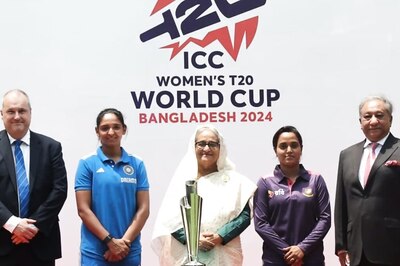
views
BANGALORE: With urbanization comes a host of urban problems. From civic issues to politics to the education system and more. Every aspect of system has its own hurdles that need to be dealt with. It is easy to play the blame game, but hard to take ownership or even confront the situation.To overcome such obstacles one needs to begin at the grass root level. The Indian Institute for Human Settlements (IIHS), in partnership with Janaagraha Centre for Citizenship and Democracy (JCCD) and South Asian Studies Council, Yale, are providing a platform for the young Indian to take a hard look at some of the most pressing problems which many a time causes avoidable disruption in the day to day life.Aromar Revi, director, Indian Institute for Human Settlements says that the formulation of ‘San-kranti’ was required to make the youth take responsibility and ownership of their cities and towns and enable them to look ahead and make the right decisions for a better tomorrow.“Unless they see and understand the multidimensional impact of urbanisation on our economy, society, environment and politics for which they will be responsible tomorrow, they will not have an integrated perspective from which to make decisions for the greater good.San-kranti is a platform that aims to create precisely this kind of perspective and sense of ownership of our spaces among the youth, with respect to urbanisation,” said Revi.With a youth demographic that touches almost 40 per cent of the country’s population, the first challenge according to Revi is the identification of a real urban problem and outlining an apt solution for it. Sankranti challenges students from across the country to think and think hard about how best can they resolve and dissolve the raging issues.The challenge is only open to teams of up to five participants from multiple disciplines who can suggest viable solutions to these problems for their city or town.Once the students of present a solution an eminent jury comprising senior academics, practitioners and policy-makers will select 20 teams from entries received across the country.The shortlisted 20 teams will then be mentored by a set of experts who will help the teams further develop their solution to address the problem in a more comprehensive manner. The top five teams at the end of this mentorship process will get to present at the India Urban Conference in Mysore.Revi reinstates his faith and confidence in the youth when he says that they are interested in taking responsibility.“They have always been interested in making a positive change.They are motivated to take part and help implement actions that will help improve the average standard of living of every Indian,” he opines.Revi explains that each student participating will benefit from several quarters.During the first stage they will receive feedback on all aspects for their problem and solution statements. This is for all participants and is aimed at improving their analytical and presentation skills. During the mentorship period teams will get to interact with eminent practitioners and academics, who will help the teams ground their solutions in appropriate theory and innovative practices.The jury at India Urban Conference will help the teams build their case along with an opportunities to interact and build their knowledge base with all kinds of stakeholders.“They will learn collaboration and optimise the use of their skills and knowledge.The interdisciplinary nature of the team will help develop an integrated perspective.Exposure and interaction with urbanists will also help these teams engage with ground realities and incorporate in them the process of questioning problems from different perspectives,” he says. The challenge is open to students who have either completed or pursuing their PHd. The students need to visit the Sankranti website to register online. Last date for registration is September 15.
















Comments
0 comment